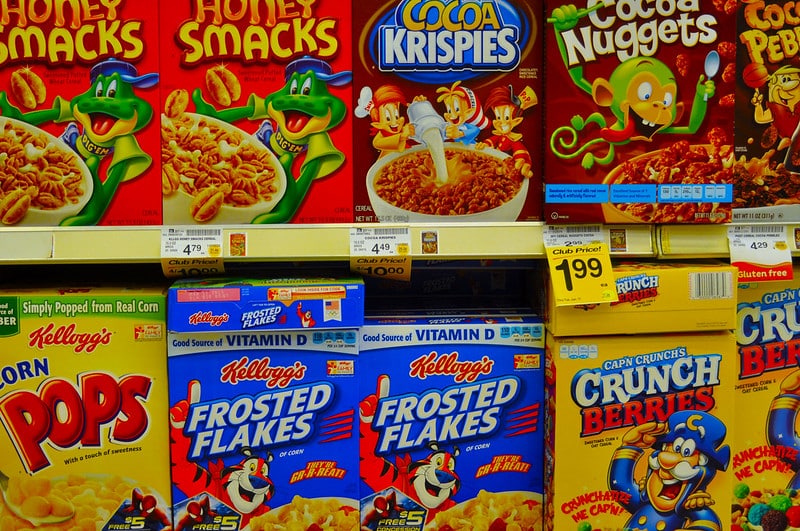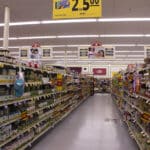
Grocery prices can only rise so high, before shoppers say “enough.” And it seems we may be reaching that point.
With inflation on the rise over the past few years, many manufacturers have been able to pass along their own higher costs to shoppers. And if shoppers balk and quit buying their products? No problem, as selling fewer products at higher prices has been more than enough for manufacturers to continue turning a profit.
But for some, round after round of price increases are finally taking their toll, as more shoppers are pushing back.
In recent weeks, several major brands have reported that selling fewer products at higher prices isn’t working out quite so well anymore. The script flipped for Kraft Heinz this past quarter, as a decline in sales outweighed the additional earnings taken in from elevated prices. Hershey also reported that it was no longer reaping the benefits of higher prices, as sales took a hit. And PepsiCo has been regularly raising prices for its snacks and drinks, but sales suffered in its most recent quarter, impacting earnings.
So it may be time for a long-awaited return to deals and lower prices. Conagra, the maker of Parkay and Blue Bonnet, recently made what its Chief Financial Officer called “pass-through price reductions” on those brands, as its own costs declined. J.M. Smucker did the same with its coffee brands like Folgers and Café Bustelo.
But most price moderation is likely to come not in the form of lower prices, but a lower rate of increases. Conagra and Smucker are the exceptions so far, while other manufacturers have signaled their intent to implement smaller price hikes going forward.
“If you look historically after periods of inflation, there’s really no period you could point to where prices go back down,” Steve Cahillane, CEO of the snack company Kellanova, told the Wall Street Journal. “Just like a gallon of gas, it becomes the new price and people get begrudgingly used to it.”
That’s created an opening for retailers like Walmart, as more shoppers are heading there for lower-priced necessities. “Food prices are lower than a year ago in places like eggs, apples and deli snacks, but higher in other places,” CEO Doug McMillon recently told investors. “Dry grocery and consumables categories, like paper goods and cleaning supplies, are up.” Also up – sales of Walmart’s own brands, as shoppers seek out cheaper alternatives to the increasingly-expensive name brands. “Customers are being choiceful,” Walmart U.S. CEO John Furner said, “and our customers are smart and they recognize value really well.”
But as some manufacturers struggle to find the right balance of raising prices without hurting sales, one brand may have figured out how to have it both ways. It just might come at the cost of some public backlash and ridicule. Cereal maker WK Kellogg has been no stranger to charging higher prices, but it’s seeking to cash in on inflation by pitching its products as cheaper alternatives to traditional meals.
“The cereal category has always been quite affordable, and it tends to be a great destination when consumers are under pressure,” CEO Gary Pilnick said in an interview on CNBC that has since gone viral. “So we’re advertising about cereal for dinner. If you think about the cost of cereal for a family versus what they might otherwise do, that’s going to be much more affordable.”
So never mind that cereal prices have soared along with just about everything else – it’s still cheaper than meat and vegetables! “Cereal for dinner is something that is probably more on trend now,” Pilnick said, “and we would expect it to continue as that consumer is under pressure.”
So Kellogg might have the best of both worlds – it can charge a lot more for a box of cereal than it used to, but still cash in by pitching its product as a less-expensive alternative to an actual meal. Relief may be on the way, in the form of lower grocery prices, or at least prices that aren’t rising so much. But until then, if you’re at your breaking point in the quest to save money on your everyday purchases, just remember – there’s always cereal for dinner.
Image source: Ian Ransley














someone needs to lower a lot of prices, because everyday food has gotten too expensive.
So What are you supposed to do eat cereal for breakfast, Lunch and dinner??
That is just crazy.. By no brand hot dogs and beans. A little better for dinner than cereal!